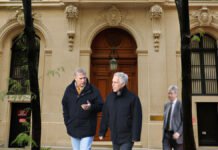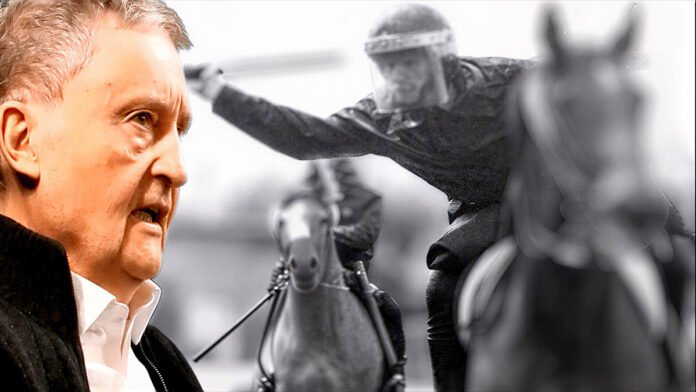
A Voice From Within: Tony Garnett Exposes the Lie of BBC “Impartiality”
In the decades since the wireless first crackled to life, we have been told a comforting, self-congratulatory tale of the British Broadcasting Corporation: a bastion of neutrality, a voice of the nation, a trusted, independent oracle whose only allegiance is to the truth. It is a fairy tale funded by the public and meticulously upheld by the very establishment it purports to scrutinise.
But no one stripped this illusion bare with such surgical precision as Tony Garnett, the legendary producer and director whose work with Ken Loach defined a generation of hard-hitting, class-conscious British realism. Speaking at the “With Banners Held High” event in 2016, Garnett didn’t offer a critique. He delivered a history lesson, methodically tracing the DNA of modern state propaganda back to the corporation’s very genesis: a rotten seed planted in 1926 that blossoms, still, into the systemic bias we observe today.
Watch Tony Garnett’s full speech.
The timing of revisiting Garnett’s devastating analysis could not be more urgent. The BBC now faces a $1 billion lawsuit from Donald Trump over edited footage that spliced his speeches to fit a preferred narrative. The corporation has admitted to “errors of judgment” in manipulating clips of Trump’s January 6th speech, carefully excising his call for “peaceful and patriotic” protest to make it appear he incited violence. Gender-critical voices have been systematically suppressed.
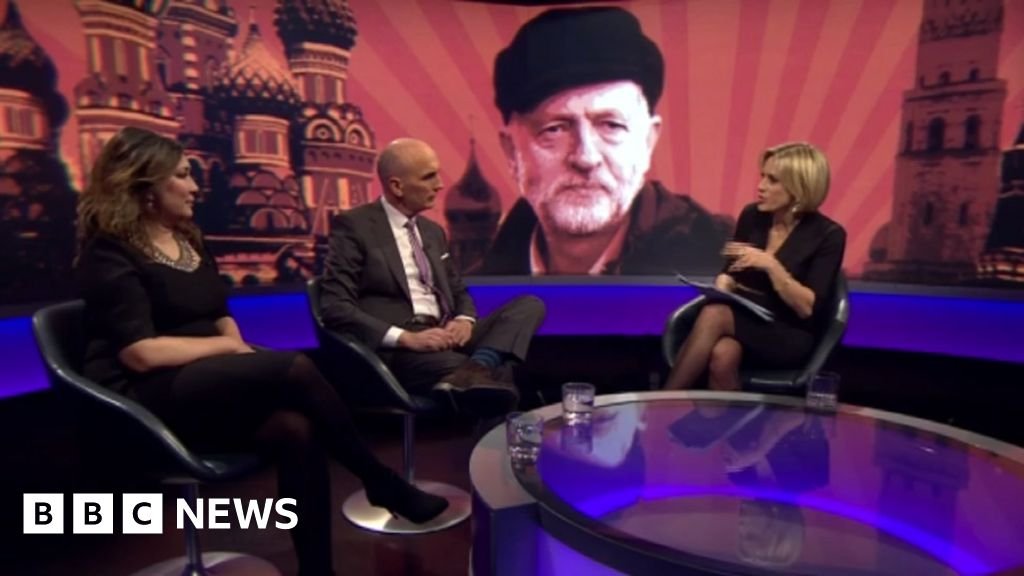
Audience reactions doctored. Applause for Jeremy Corbyn cut. Boris Johnson’s Remembrance Sunday footage “accidentally” edited to improve his image. From the infamous reversal of Orgreave footage to Brexit coverage dripping with contempt for working-class voters, the BBC has spent years manipulating, chopping, and reframing to fit the establishment narrative.
Impartial? Hardly. Institutional? Absolutely.
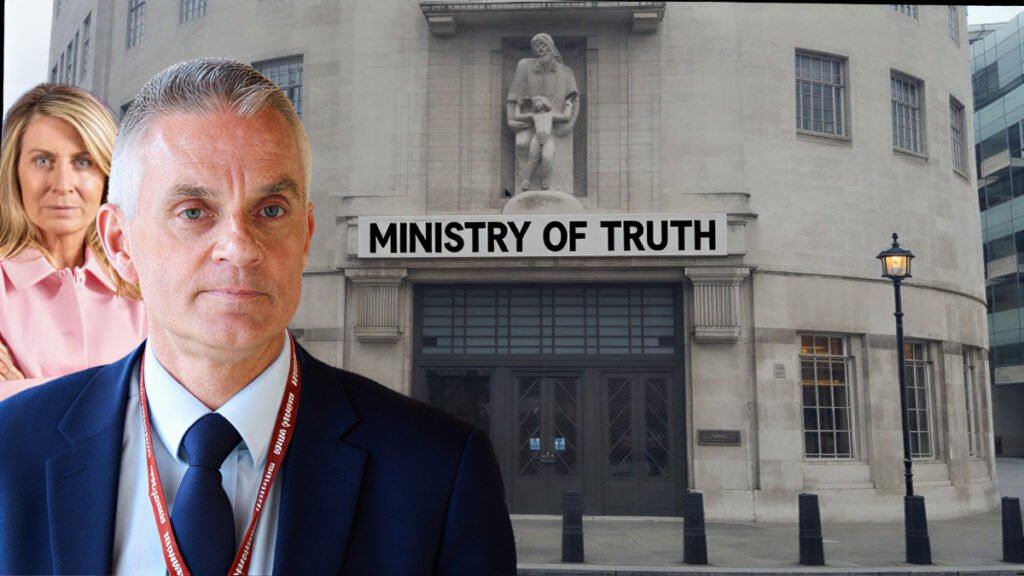
Garnett traced the rot directly to the 1926 General Strike, the moment when the BBC made its Faustian bargain with power. As 1.2 million coal miners faced starvation wages and brutal hours, battling against an economy crippled by Churchill’s return to the gold standard, John Reith’s nascent BBC performed a calculated act of institutional betrayal. Not a single miner’s voice was aired. Not one speech. Not one guest. Not a single word in their defence reached the British public.
Winston Churchill wanted to seize the wireless outright for government propaganda. Stanley Baldwin, the cannier class warrior, understood something more sophisticated. People would believe what they heard if they thought it was independent. So Reith kept his BBC, on one condition: total compliance with the government’s anti-strike line. The miners starved back to work months later, defeated not just by the mine owners but by a media apparatus that had learned the most valuable lesson in modern propaganda. You don’t need to tell obvious lies. You simply control which truths are allowed to be spoken.
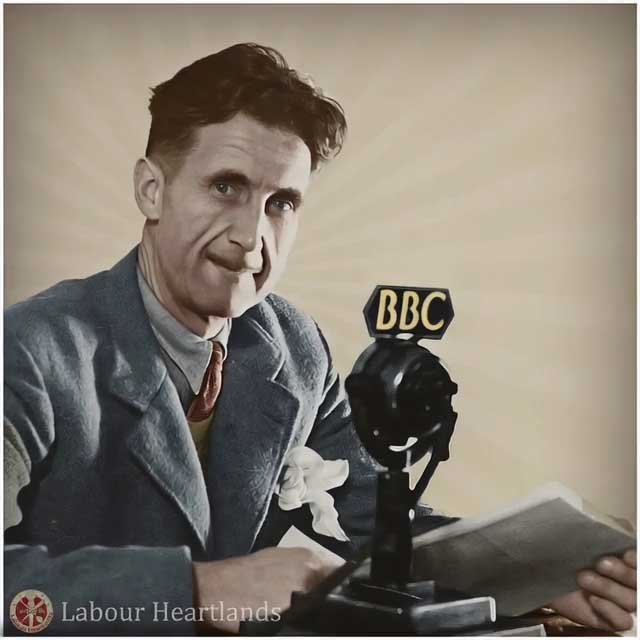
“Every record has been destroyed or falsified, every book rewritten, every picture has been repainted, every statue and street building has been renamed, every date has been altered. And the process is continuing day by day and minute by minute. History has stopped. Nothing exists except an endless present in which the Party is always right.” ― George Orwell, 1984
Reith, who openly confessed his admiration for Mussolini and held neo-fascist views, reasoned that because the elected government represented “the people,” the BBC must represent the government. Thus, in a single cynical manoeuvre, was born the myth of BBC independence, a myth that has served as the political elite’s most sophisticated and enduring tool ever since.
The pattern, once set, has never broken. It is a thread woven through every major conflict between power and the working class. In 1984, during the miners’ strike, when Margaret Thatcher branded striking miners “the enemy within,” BBC cameras dutifully positioned themselves behind police lines, filming miners’ self-defence as mob violence.
The Orgreave footage was creatively edited to open with an image of a miner kicking a policeman. What wasn’t shown was that the police charge had come first. The footage had been reversed. In 2014, the BBC insisted there was “no evidence of any deliberate attempt to mislead viewers,” admitting only that “some of the violence had not been recorded because of camera error.” One wonders what evidence they would consider sufficient. A signed confession in the edit suite?
Garnett’s investigation revealed structural corruption far deeper than editorial bias. During the Cold War, MI5 maintained an office inside Broadcasting House, vetting staff and blacklisting left-leaning directors and journalists. Security services provided regular secret briefings to BBC news editors about “radical and subversive political groups.” As Garnett chillingly described it, this was “like the Stasi in East Germany.” And all funded, of course, by your license fee.
In 1965, the BBC banned Peter Watkins’ “The War Game” because, as the chairman of the board of governors wrote in a secret letter, it “might have a significant effect on public attitudes towards the policy of nuclear deterrence.” In 2003, the BBC’s chairman and director-general resigned not because the government had lied about Iraqi weapons of mass destruction, but because a reporter had the temerity to say so on air. During the 2007 financial collapse, virtually every voice interpreting events on the Today Programme came from the City or Wall Street. The people who had caused the crisis were given the airtime to explain how to fix it. No Marxist economists. Scarcely a Keynesian. No trade union leaders. Just the uninterrupted drone of market fundamentalism, presented as the only game in town.
Garnett’s most devastating accusation was not against individual journalists, but against the structure that moulds them. When he famously claimed that “the most accomplished fiction on the BBC is the news,” he wasn’t making a joke. He knew these journalists “try hard to be balanced, but they work within an ideological framework, the more powerful for it being unconscious.” That framework is ruling-class ideology, polished daily in Westminster and flawlessly transmitted across Britain’s screens.
“Objective truth, even in the news, is a mirage,” Garnett argued. “Attach meaning to facts, contextualise them, and you tell a story. It’s an act of creation. The people inventing the news try to persuade you that they’re just telling you the truth. It’s their story. If they control the narrative, they control the people.”
This is the true lie of “impartiality.” Not one of occasional error, but of fundamental structural design. It is what allows the BBC to invent “balance” by placing two establishment figures in debate while systematically excluding working-class perspectives entirely. It is the invisible force that ensures discussions on war, foreign policy, or the economy are monopolised by generals, bankers, and think-tank apparatchiks, never trade unionists or socialists. It is the cover for a century of propaganda dressed as public service.
The BBC’s journalists live in London, work in London, socialise with politicians in London, and see the rest of the country as visiting anthropologists see foreign lands. “When did you last see people like you represented accurately in your dignity, as intelligent, productive, adult citizens?” Garnett asked his Yorkshire audience. The BBC caricatures working people in soaps and patronises them in reality television. When workers strike, when it truly matters, the BBC speaks with the voice of the ruling class. Any disagreements on screen merely reflect that class in dispute with itself.
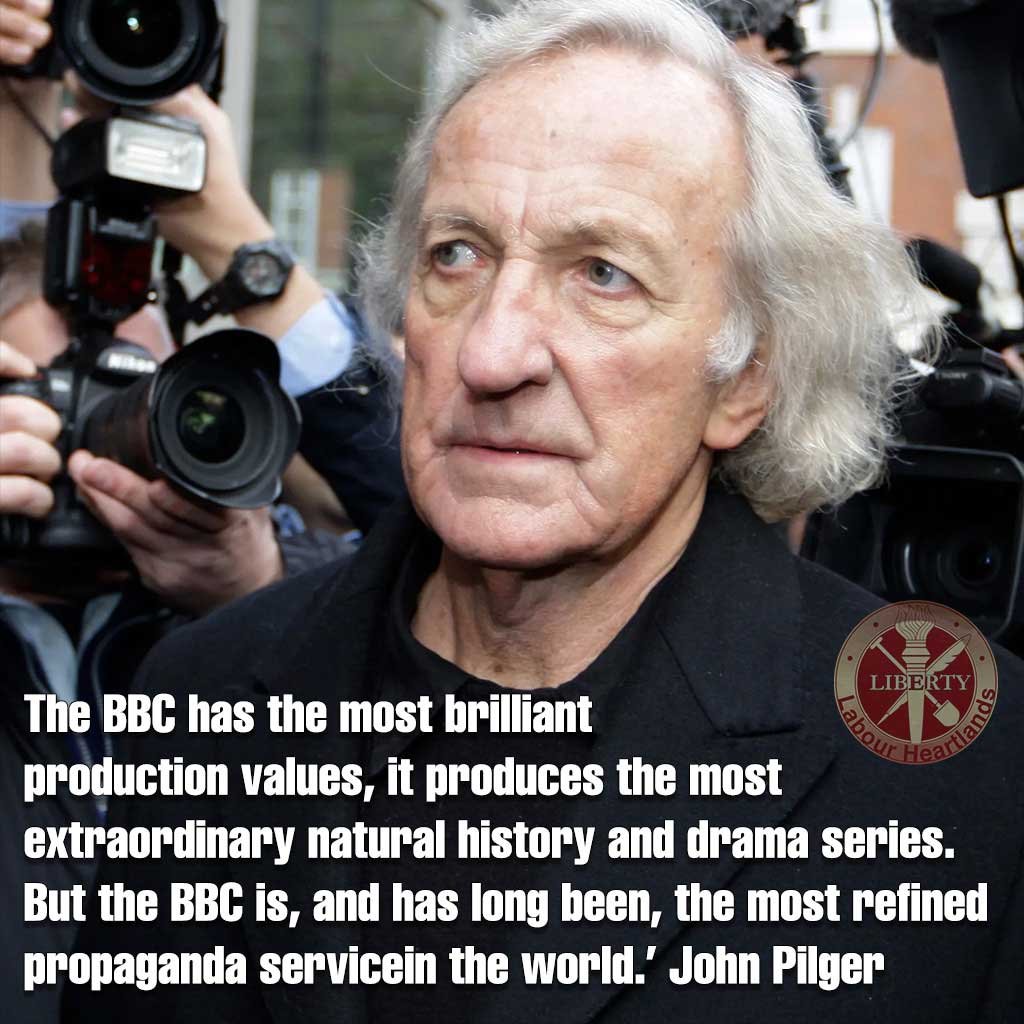
The BBC is structurally incapable of independence. Its chairman is a political appointment. Its funding comes from Downing Street. When Thames Television’s documentary “Death on the Rock” displeased Thatcher by investigating the state assassination of unarmed suspected IRA members, the company lost its franchise and was destroyed. It was replaced by Carlton, whose owner was a Tory friend and whose public relations man, in his only job outside politics, was called David Cameron. The lesson was clear. Step out of line, and you will be eliminated.
Yes, the BBC produces remarkable drama. Yes, its natural history programming is world-class. This is precisely what makes its political role so insidious. The excellence of “Planet Earth” provides cover for the propaganda of the news. The wit of its comedy shows obscures the narrowness of its political imagination. People defend the BBC because they conflate the institution with its best work, unable to see that the same organisation bringing you David Attenborough ensured not a single miner’s voice was heard in 1926, reversed footage at Orgreave in 1984, and is now facing a billion-dollar lawsuit for editorial manipulation in 2025.
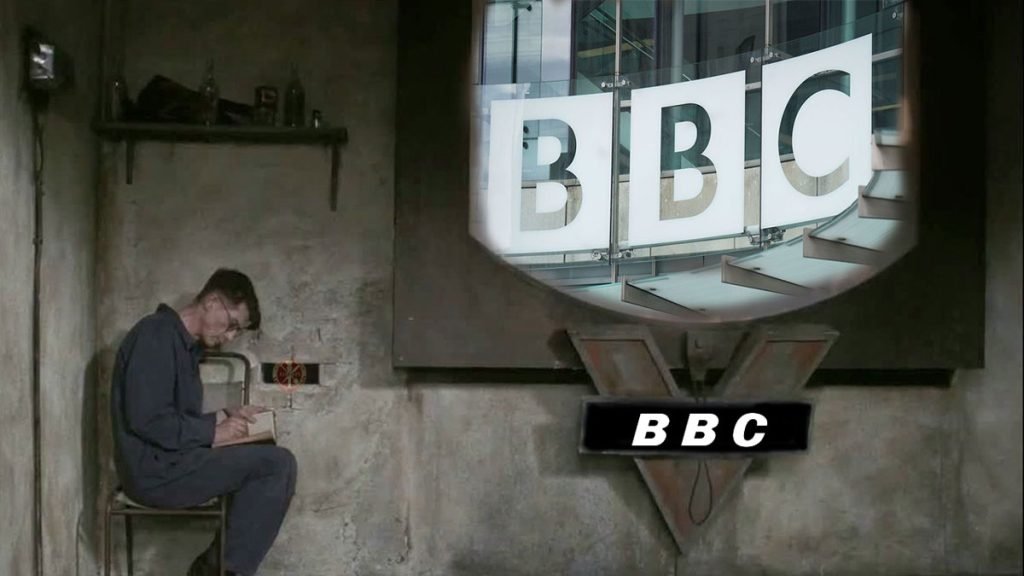
Some on the right want to abolish the BBC entirely, to hand its territory to Murdoch and American media corporations. This is not the answer. Replacing a state broadcaster with corporate broadcasters merely exchanges one form of control for another. But neither can we continue with the current arrangement, where millions of working-class households hand over license fees to an institution that has spent a century working against their interests, doctoring their reality, and silencing their voices.
Garnett offered the only viable path forward. “I want a BBC that retains its historical mission to educate, inform, and entertain,” he declared. “A BBC that’s free to speak truth to power. A BBC that is democratised from within and from without, separated from the clutches of the Westminster conspiracy against the people. A BBC drawing together all strands of our national life and truly engaging in a national conversation. It’s going to be a fight to achieve it, but it’s one worth fighting.”
This will require genuine democratisation. Not the sham independence granted by Baldwin to Reith in return for political obedience, but structural separation from the Westminster establishment. A BBC governed by those who fund it, answerable to the public rather than to Number 10. The ruling class will not voluntarily relinquish control of such a powerful weapon. They will cry about politicisation, as if the BBC were not already thoroughly politicised in service of their interests. They will warn about quality declining, as if quality programming were incompatible with democratic governance. They will invoke editorial independence, blind to the irony that true editorial independence is exactly what we are demanding.
The BBC is not your family, despite how it presents itself. It is not part of “us.” When the chips are down, when working people challenge the established order, the BBC knows which side it is on. It has known since 1926. The question is not whether the BBC is biased. The question is how much longer we will continue paying for the privilege of being lied to.
Image credits ©RayRising/reportdigital.co.uk
Support Independent Journalism Today
Our unwavering dedication is to provide you with unbiased news, diverse perspectives, and insightful opinions. We're on a mission to ensure that those in positions of power are held accountable for their actions, but we can't do it alone. Labour Heartlands is primarily funded by me, Paul Knaggs, and by the generous contributions of readers like you. Your donations keep us going and help us uphold the principles of independent journalism. Join us in our quest for truth, transparency, and accountability – donate today and be a part of our mission!
Like everyone else, we're facing challenges, and we need your help to stay online and continue providing crucial journalism. Every contribution, no matter how small, goes a long way in helping us thrive. By becoming one of our donors, you become a vital part of our mission to uncover the truth and uphold the values of democracy.
While we maintain our independence from political affiliations, we stand united against corruption, injustice, and the erosion of free speech, truth, and democracy. We believe in the power of accurate information in a democracy, and we consider facts non-negotiable.
Your support, no matter the amount, can make a significant impact. Together, we can make a difference and continue our journey toward a more informed and just society.
Thank you for supporting Labour Heartlands
